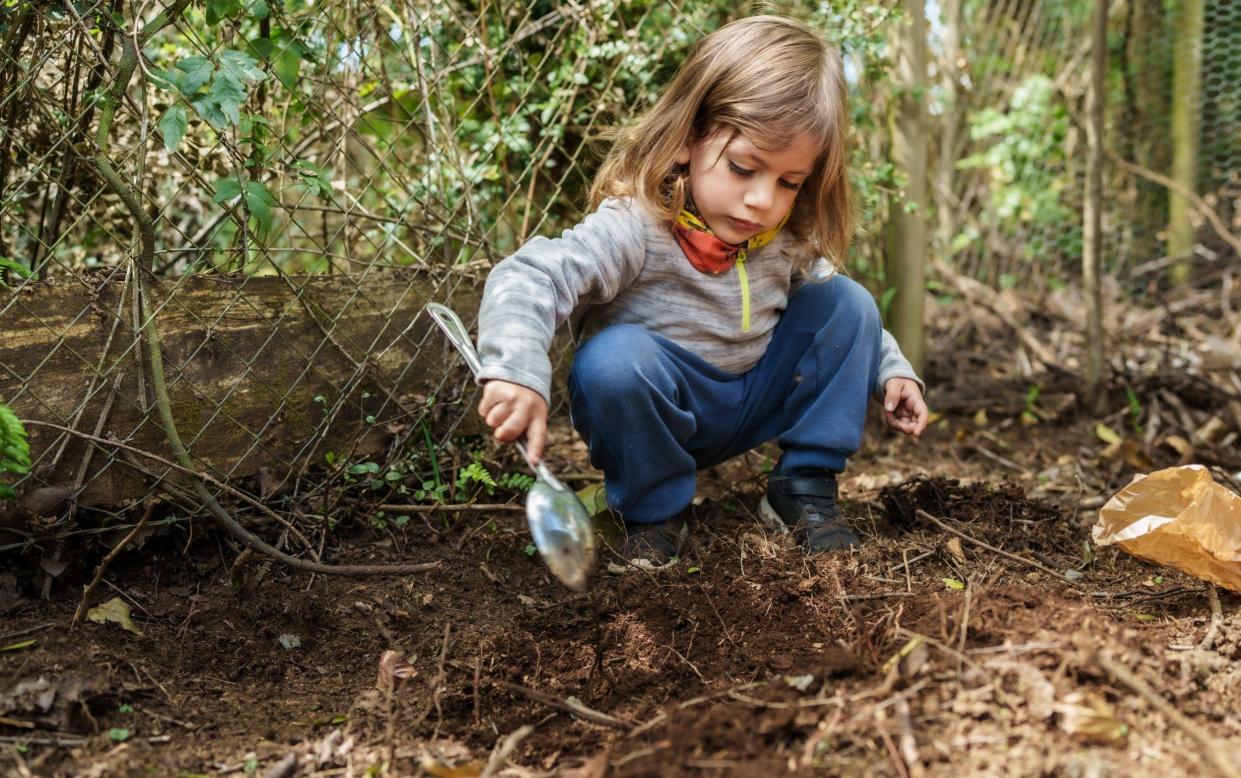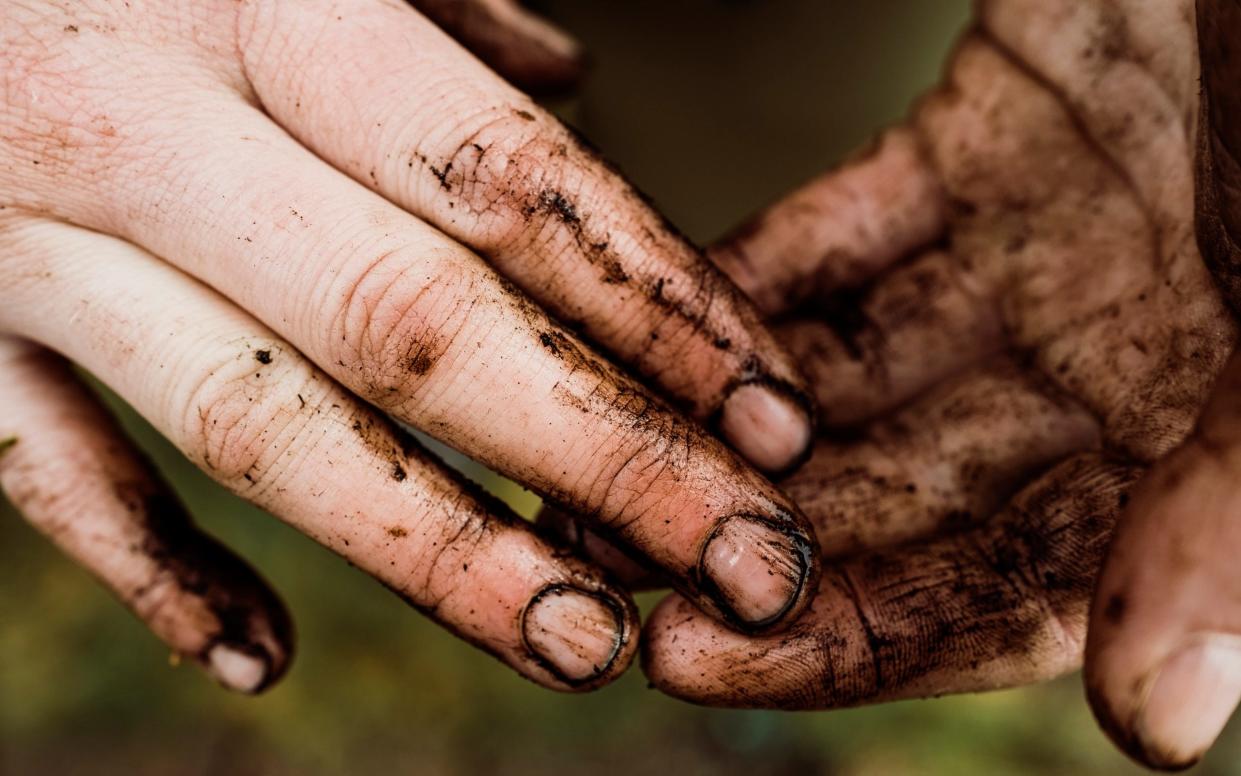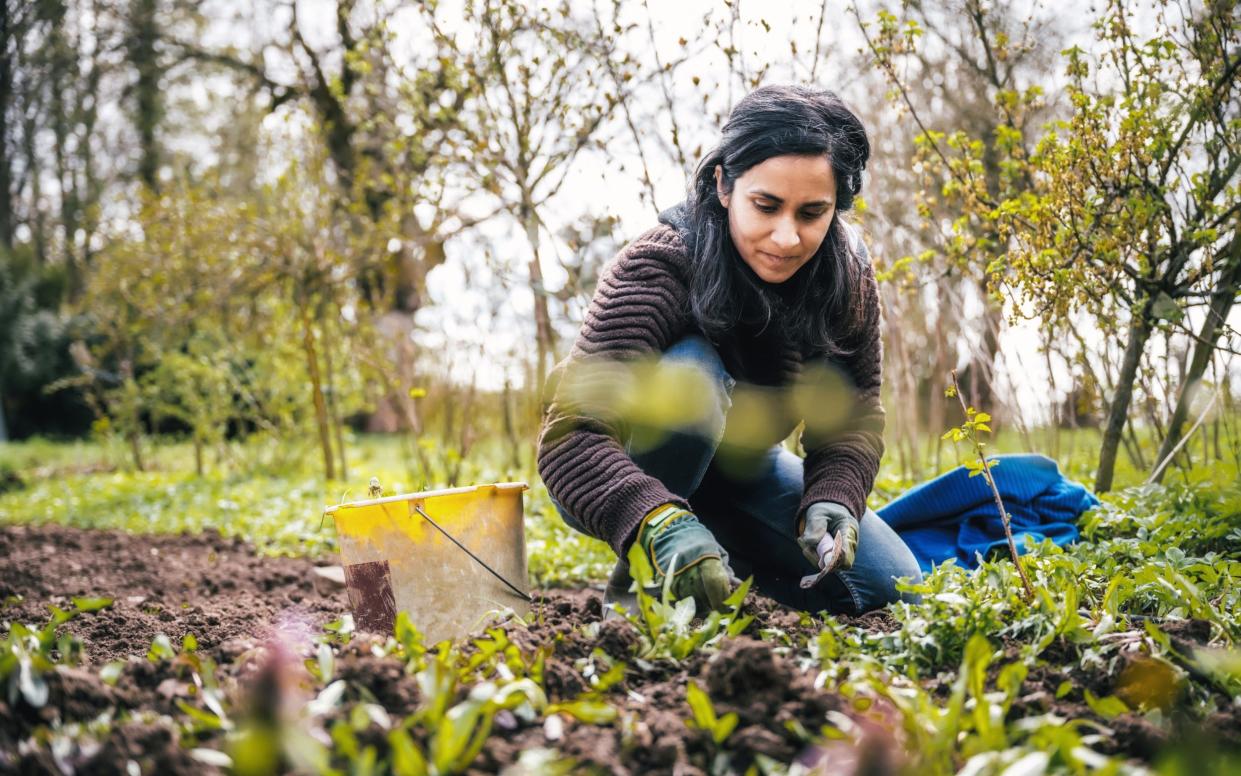The surprising health benefits of dirt

If you’re the kind of person who carries hand sanitiser at all times and thinks cleaning the kitchen means blasting every surface with antibacterial spray, you may want to put down that bottle of Flash.
According to experts, since we’ve become a nation of “germaphobes,” we’re actually making ourselves sicker and, in fact, there are many health benefits to be gained by getting a bit, well, mucky.
“Most infectious diseases – putting aside Covid – are far less common in the modern world than they were historically, whereas rates of chronic inflammatory disorders such as asthma and Crohn’s disease are rapidly increasing,” says Dr Neil McCarthy, a senior lecturer in immunology at Queen Mary University of London. “This is happening too quickly to be explained by genetics alone, so there must be other factors involved.”
Exposure to microbes (minute orgasms such as bacteria, that can’t be seen by the naked eye) are needed in early life to set up our immune system correctly, explains Dr McCarthy.
“Otherwise our immune system struggles to tell the difference between the dangerous stuff and the harmless things in your environment. It’s possible that some important microbial signals are missing in today’s modern world, which may help explain some of the health problems we experience.” Here’s how you can increase your exposure to dirt to bolster your health.

Exercise outdoors
Pounding the gym treadmill may burn the same calories as an outdoor run, but being outside will expose us to more of the good stuff.
A healthy, resilient gut involves having a high microbial diversity, i.e. a high number of different species that are evenly spread across your gut microbiome. These various species of gut bacteria serve several important functions such as aiding in digestion, helping with the absorption and production of essential nutrients, and regulating our immune, metabolic and nervous systems.
In essence, the more diverse your gut bacteria are, the more potential they have to support all these functions. “Plenty of research shows that wild animals have more diverse microbial communities living on skin and inside their bodies, compared with animals kept in clean indoor environments,” says Dr McCarthy. “Their immune systems work very differently, and more effectively, as a result of that.”
He suggests that spending more time in nature could have similar benefits for humans, although it’s not clear exactly which microbes are most helpful or how our immune cells might be reacting to them, he admits.
Do as kids do
When you drop food do you employ the so-called “five second rule”, giving you licence to pick it up and eat it anyway? Top marks if so.
“Kids are constantly putting dirty stuff in their mouths and that may not be an entirely bad thing,” says Dr McCarthy. “Early life is a critical time for our immune system to learn which microbes are living in the world around us and how best to recognise them. This is about getting the balance right; living in filthy conditions is obviously not sensible but it’s also a bad idea to keep children totally ‘bug free’.”
Researchers have found that the likelihood of asthma was reduced in children exposed to endotoxin, a major building block in many bacterial cell walls (i.e. their protective outer coat). These common ‘bits of bugs’ can build up in household dust (the microbes don’t have to be alive as our immune systems can still detect stuff they leave behind in the environment).
“Even some unpleasant infections such as measles and chickenpox (or vaccines against them) which make kids feel sick for a while, actually reduce their risk of nasty diseases including certain cancer types as adults,” says Dr McCarthy.
A lower diversity in our guts is associated with various diseases such as inflammatory bowel disease, Type 1 diabetes, obesity and other health concerns.
Plant or grow something
Plants live in soil which is rich in diverse microbial species, so any form of interaction with plants is likely to increase your microbial biodiversity.
“You won’t get much exposure to different microbes by buying carefully washed vegetables from supermarkets,” says Dr McCarthy. “It’s useful to encounter some of the microbes in garden bugs and the chemicals they produce so that your immune system can get a proper look at them and build up good defences.”
In one study, the guts of non-gardeners contained fewer or no soil bacteria, and their gut microbes stayed monotonous all year.
If you don’t want to maintain your own garden vegetable patch or don’t have the room, why not grow your own herbs instead, suggests Emily English, a nutritionist and the founder of gut supplement Epetóme.
“Having a herb plant in your kitchen is low maintenance, gets your hands in the soil, and then eating the herbs also benefits the gut as they contain certain polyphenols, which are natural compounds found in many plants, and have antioxidant and anti-inflammatory properties and also act as “food” for the good bacteria in your gut,” she says. “After all, the gut microbiome is inextricably linked to the digestive system, the brain (via the vagus nerve), our skin health, our immune system and hormones.”

However, it would be unwise to encourage any play in an actual compost heap, especially for people with weakened immune systems. “They can be ideal homes for sporulating fungi, including species that can be pathogenic to people,” says Dr Kieran Bates, a lecturer in microbiome science at London’s Blizard Institute. “A recent study found that many of the fungal isolates collected from compost were resistant to multiple frontline antifungal drugs used in hospitals.”
While some dirt is good for us, Dr Bates insists that it’s wise to retain some caution.
Holiday near rural farms
You don’t need to go as far as milking a cow, but walking in fields where there are grazing animals is a good start.
“We have evolved throughout human history to co-exist with a diverse range of microorganisms both in and among us, yet our modern lifestyles, spent largely indoors in relatively sterile environments, are a stark contrast to those of our ancestors, “ says Dr Louisa James, a senior lecturer in immunology at the Blizard Institute. “It makes sense that activities which increase our exposures to the rich diversity of the microbial world, can have an overall beneficial effect on our immune health.”
Research carried out on over 6,000 randomly selected animal farmers has suggested that people who grow up on farms have lower rates of Crohn’s disease, asthma and allergies.
“Rural environments – especially farms – are naturally more biodiverse than cities which explains this reduced rates of allergies,” says Dr James. “In terms of asthma, pollution and a lack of exercise are also important contributing factors for lung health.”
A paper in 2017 compared microbes in the guts of 18 populations in 16 countries. Their study showed a clear distinction between the microbes in people living in industrialised societies and those living in what the investigators called “more traditional” societies.
These studies, explains Dr McCarthy, looked at isolated populations in the United States who still use old-fashioned farming methods, like the Amish. “They were found to have much lowers rates of allergies and asthma compared to the general public, this might be linked with the different types of microbes found in their homes.”
Don’t clean too much
During the pandemic, many of us adopted germophobic levels of cleanliness. But curbing the instinct to reach for the disinfectant might be wise.
“It’s quite likely that less clean households contain lots of ‘microbial friends’ that produce chemicals our immune cells can detect,” explains Dr McCarthy. “This causes different immune genes to be switched ‘on’ and ‘off’ in useful ways, though scientists are still trying to figure out exactly how this works.”
No one likes to imagine the bugs lurking as you sleep, but having high levels of microbial junk in your mattress has been linked with lower risk of hay fever, says Dr McCarthy. “Having a big family with lots of older brothers and sisters can reduce your chances of getting hay fever.”
It’s not a greenlight to stop cleaning altogether though. “While excessive cleanliness does reduce the microbial diversity in our environment, hygiene is absolutely necessary to prevent communicable diseases,,” says Dr James. “Raw meat for example can contain disease-causing pathogens, so cleaning kitchen surfaces after food preparation is sensible.
“It is really a balance regarding cleaning products; bleach-based or anti-bacterial cleaning products used moderately, as part of good hygiene practices, are important to minimise transmission of disease. But we certainly shouldn’t be creating sterile indoor environments.
“In addition, the detergents in cleaning products can damage the barriers of our lungs or skin, this can trigger inflammation which in turn can increase the risk of eczema and asthma,” adds Dr James.
Old wives’ cleaning tips that use fewer chemicals
“There are some really nasty chemicals in many cleaning products, which we inhale in the air, touch on surfaces and which end up in our streams, rivers and seas which wreak havoc on our waterlife and wildlife,” says Julie Macken, the founder of the organic company Neve’s Bees.
Her rule of thumb is that if it’s something that is safe to eat, it’s safe to use for cleaning.
White vinegar
Window cleaning: Start by brushing off and dust, dirt and cobwebs with a soft brush, then wipe off the worst of the grime with warm soapy water (such as eco washing up liquid), then spray with white vinegar (recycle as old spray bottle) and rub with a soft cloth quickly to ensure glass remains streak free.
Floor cleaning: Julie uses a formula inspired by Nancy Birtwhistle. You’ll need:
200ml white vinegar
50ml eco washing up liquid
1-2ml (about 20-30 drops) of essential oils like lavender or orange (if you want)
300ml glass bottle with a screw lid
Pour them all into the bottle and give them a good swirl. To use, half fill a bucket with warm water and add about 30ml of the cleanser and mop away. (If your floor is wood rather than tiled you need to use less)
Limescale remover for taps or sink: Vinegar is great on a cloth pad (or cotton wool make up wipe). Pour a little vinegar on the pad and leave on the limescale near the taps or in the sink for about 15 mins and it dissolves away the limescale
Natural citric acid
Sold in health food shops online, this is a great descaler. If your kettle or teapot is full of scale, simply half fill the kettle with water and boil, then add 80g citric acid and leave for about half an hour then swirl it round, clearing any limescale from the edges or spout. It also works for teapots to remove tannin-stained limescale.
Beeswax
This is great as a wood polish for chopping boards, wood tables and wood furniture. You’ll need:
15g beeswax
45g oil (such as olive, hazelnut, linseed or coconut)
10-20 drops of essential oil (such as lavender or other woody scents such as pine, cypress or cedarwood)
Optional 10 drops of vitamin E oil (wheatgerm) or rosemary which act as antioxidants and extend the life of the oil
This will make around 60g of polish, a standard sized shoe polish tin.
Put the 45g oil and beeswax in a pyrex jug in a pan of boiling water, heat it gently, stirring occasionally until the beeswax melts, then remove from the heat and add the essential oil and optional vitamin E oil and stir well.
Pour the melted mixture into a tin or glass container and allow 10 mins to set (top tip: don’t use a narrow necked container because it’ll be difficult to get the polish out).


